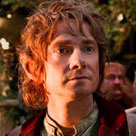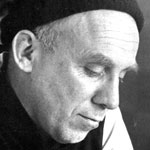“Why, I feel all thin, sort of stretched if you know what I mean: like butter that has been scraped over too much bread.”
So said Bilbo to Gandalf in Tolkien’s The Lord of the Rings, when he was relating the ennui which accompanies a life lived too long.
The same might be said of Peter Jackson’s first instalment of The Hobbit, which at 2 hours 45 minutes, is a film that goes too long.
I will reserve judgement on the wisdom of dividing a short children’s novel into a three part movie epic, but I can say with certainty that the editors should have been more stringent with this instalment. The first part of the movie, set in Bilbo’s hobbit hole, is interminable. A scene involving trolls would benefit from heavier editing. But perhaps most tellingly, in the middle of a stunning action sequence involving a goblin horde, I found time to step back from the story and marvel at the cinematography. That shouldn’t happen in an action sequence. It was too long.
My complaints, however, are limited to the pacing of the narrative. In other respects, Jackson improves upon Tolkien’s plot. To any movie goer familiar with the original novel, it quickly becomes evident that Jackson never intended to simply adapt The Hobbit to the screen. Instead he uses the novel as a vehicle to create a prequel equal in scope to The Lord of the Rings.
Purists will complain about non-canonical characters and altered details. To which I can only respond: don’t watch this movie with Tolkien’s novel in mind. Watch it with Jackson’s trilogy in mind.
Having said that, the greatest part of Jackson’s movie is faithful to Tolkien’s book. Gollum steals every scene he is in, but even he cannot detract from the critical moment which is a hinge not only to The Hobbit, but also to The Lord of the Rings. The film’s depiction of Bilbo’s “pity, mixed with horror” conveys everything Tolkien describes:
He was desperate. He must get away, out of this horrible darkness, while he had any strength left. He must fight. He must stab the foul thing, put its eyes out, kill it. It meant to kill him. No, not a fair fight. He was invisible now. Gollum had no sword. Gollum had not actually threatened to kill him, or tried to yet. And he was miserable, alone, lost. A sudden understanding, a pity mixed with horror, welled up in Bilbo’s heart: a glimpse of endless unmarked days without light or hope of betterment, hard stone, cold fish, sneaking and whispering. All these thoughts passed in a flash of a second. He trembled. And then quite suddenly in another flash, as if lifted by a new strength and resolve, he leaped.
Many decades later, Frodo suggested it was a pity that Bilbo didn’t kill Gollum when he had the chance. Gandalf demurs:
Pity? It was pity that stayed his hand. Pity, and mercy: not to strike without need. And he has been well rewarded, Frodo. Be sure that he took so little hurt from the evil, and escaped in the end, because he began the ownership of the Ring so. With pity . . .
. . Many that live deserve death. And some that die deserve life. Can you give it to them? Then do not be too eager to deal out death in judgement. For even the very wise cannot see all ends . . . the pity of Bilbo may rule the fate of many – yours not least.
It has been suggested that the reframing of The Hobbit into an epic prequel has obscured Tolkien’s moral tale about hobbits and humility and the “small everyday deeds of ordinary folk.” I don’t think so. In fact, it could be argued that Jackson makes this theme much more explicit than does Tolkien – not inappropriately, given a different medium and a different audience.
To conclude, I think it can be said that although Jackson’s film is not very faithful to the pace and tone of Tolkien’s book, Jackson is faithful to Tolkien’s vision. If only it wasn’t half an hour too long, I would call this an outstanding movie. As it is, The Hobbit is overwrought but very good.





I actually loved it.
I thought it was a little long but on the whole I thought it was done extremely well. I can understand the editors finding it hard to cut out some of the scenes.